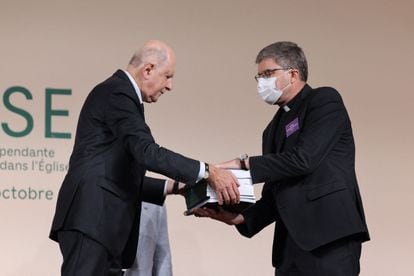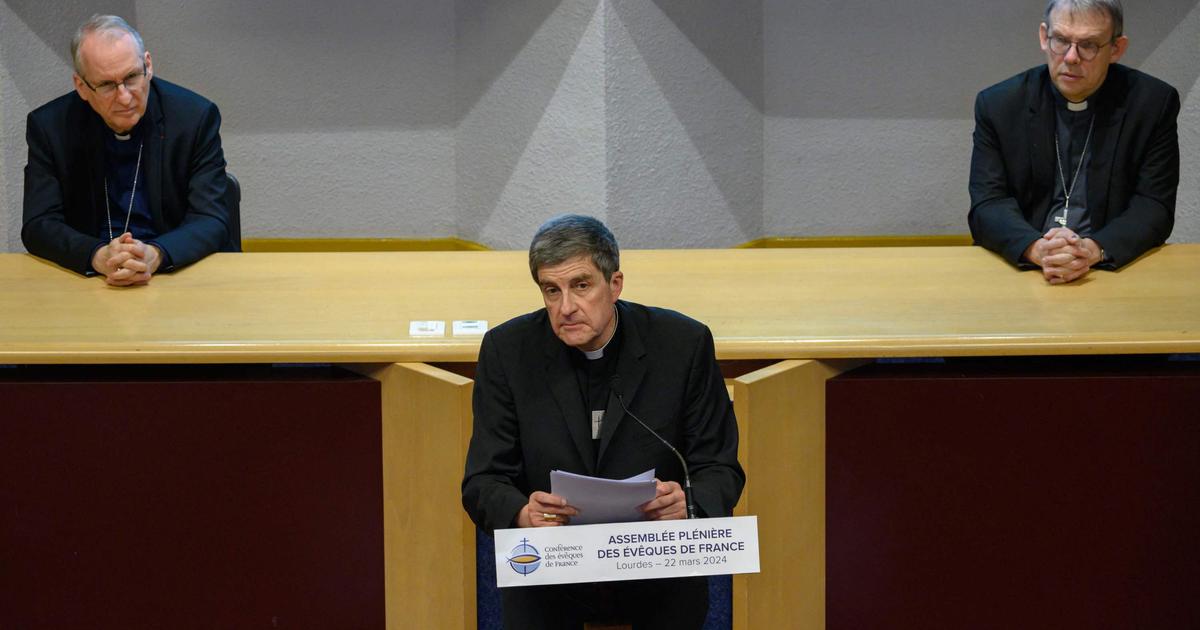The mechanism to "repair" and compensate the many victims of child abuse within the Catholic Church in France is already underway.
Four and a half months after an independent commission estimated at least 216,000 cases of pedophilia committed by French religious in the last seven decades, the National Independent Body for Recognition and Reparation (INIRR), the body created by the Episcopal Conference of France (CEF) to accompany the victims and determine, if necessary, the compensation to which they are entitled, has announced that it is already managing the first cases.
Although its public presentation was this Thursday at an event in Paris and the entire team has not yet been closed, some 180 people have already contacted the INIRR in recent weeks, when it was still being established, to request a "reparation" for the abuses suffered, has revealed Marie Derain de Vaucresson, president of this institution, financed by the Episcopal Conference but which will work completely independently.
The institution that will lead the next three years, with a mandate renewable only once, already has several million euros raised by the dioceses to meet the foreseeable financial compensation.
However, the veteran jurist, specialized in violence against minors and who was Ombudsman for Children, has stressed that money is not the priority of most of those who knock on her door.
In fact, "less than half" of the cases already attended, which are expected to multiply exponentially in the coming months and years, prioritize the financial issue when seeking compensation for the abuses suffered, she has assured.
Many barely demand "a symbolic euro" and what they seek is only to be able to talk about what they suffered, hear a repentance or at least confront their aggressors or their religious leaders who at the time did not want or knew how to listen to them.
“Our task is very simple: it is about listening, recognizing and repairing”, beginning with an apparently simple question: “What do you want us to do for you?” De Vaucresson summarized at a press conference in Paris regarding your team's task.
This will consist of a number of "dialogue referents" yet to be specified, people who will attend each victim individually to "dialogue and meet her demands."
The referents, whose number will depend on the number of victims who come to the INIRR, will be recruited from among jurists, specialists in psychology and mediators, among others.
The president of the Ciase, Jean-Marc Sauvé (left), delivers the pederasty report to the president of the French Episcopal Conference, Eric de Moulins-Beaufort, on October 5. THOMAS COEX (AFP)
Each referent will carry out an "individualized listening" of the victim, "without judging her", and will seek to identify with her not only the abuses of which she was a victim, but also the "faults and deficiencies of both the Church and other people around her." ”.
He will also make an assessment of "the long-term consequences on his life" of these abuses, De Vaucresson explained.
With the "events evoked, the traumatic consequences, the previous needs and demands" of the victim, and always in coordination with the victim, a report will be drawn up that can lead to a "request for recognition and reparation" that will in turn be analyzed by a "college of experts".
It is a permanent body made up of 12 people - doctors, lawyers and even magistrates - who are being recruited for their experience in fields such as health,
The "college of experts" will in turn issue a "decision", which can range from a simple "strong, symbolic statement confirming what the person has experienced and the shortcomings, especially of the members of the Church" to even the request for a “financial reparation”.
The forms and amounts of compensation are yet to be determined, De Vaucresson specified, although he has anticipated that they hope to start "satisfying the demands for financial reparation" (the expert prefers not to use the word compensation) in the coming months, in any case “until summer”.
More information
Law firms and independent audits: the German model to investigate pederasty in the Church
It is not the INIRR that should distribute the money.
This institution will send its recommendations to the Fund for Helping and Fighting Child Abuse (Selam, for its French acronym), a body created last year by the Episcopal Conference and which, in January, announced that it had managed to collect the first 20 million euros thanks to the sale of real estate assets and investments of various dioceses and bishoprics.
Of this first item, five million have already been directed to the "financial accompaniment" of the victims as determined by the INIRR and another million to "actions of prevention and memory".
The Selam, created as the INIRR by the Episcopal Conference, will not be able to discuss
a priori the amount recommended by the experts of the Vaucresson institution and these, for their part, do not have to justify the figure presented before the fund, explained the interim general secretary of the INIRR, Daniel Gacoin.
Together with the INIRR, another independent institution has already begun to work, the Recognition and Reparation Commission (CRR), also created at the end of the year and in response to the report of the Independent Commission on Sexual Abuse in the Church (Ciase, in its acronym in French) by the Conference of Religious Men and Women of France (Corref), which will attend to the demands of victims of pederasty in religious congregations.
Unlike the INIRR, which will stipulate the compensation to be paid by the Church fund, the CRR must negotiate financial compensation with the affected congregation in each individual case.
De Vaucresson has recognized that the existence of two such similar institutions "complicates things for the victims", but has explained that this format was decided for "legal issues" on how to agree and distribute compensation and ensures that the two commissions work already in close contact and that a “common portal” is even planned to welcome the victims before referring them to one or another instance.




/cloudfront-eu-central-1.images.arcpublishing.com/prisa/2LRPBTQQ4E4LXICPWKPWK2HCIQ.jpg)




